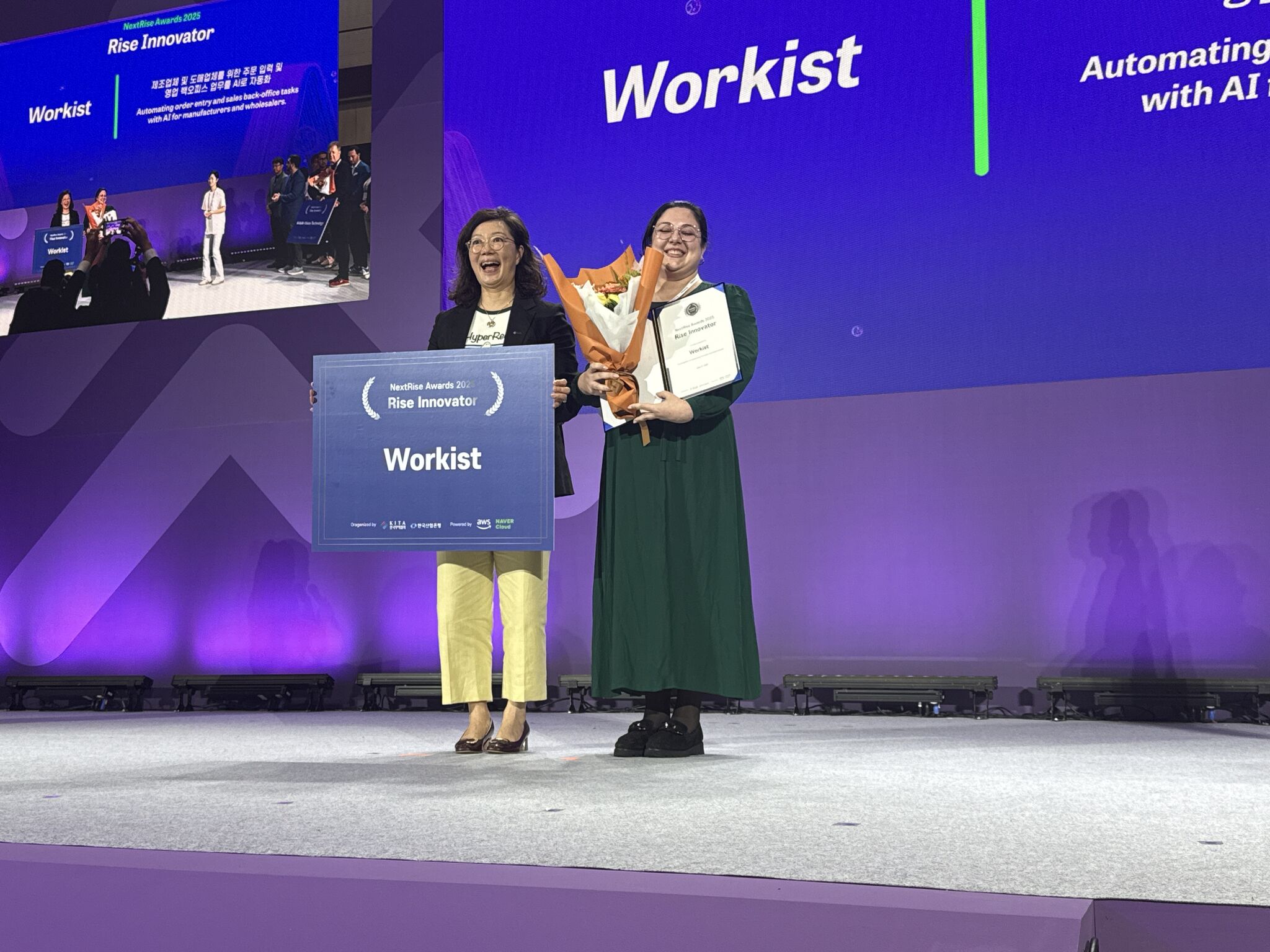Tight profit margins and international competition make wholesale a challenging industry that is becoming increasingly automated. In such an environment, companies need to constantly develop innovative strategies to stay ahead of the game. Artificial intelligence (AI) is a pioneering technology that has the potential to revolutionize wholesale.
AI offers a multitude of benefits and can help wholesale companies to stand out from the competition. In this article, we take a closer look at the key opportunities and benefits of AI in wholesale.
Understanding AI: The most important facts in a nutshell
Artificial intelligence (AI) refers to computer systems that are able to perform tasks that traditionally require human intelligence - for example learning, problem-solving or decision-making.
Today's AI systems use machine learning, can read natural language and process huge amounts of data using advanced algorithms. This enables companies to optimize and automate processes.
AI therefore has the potential to change the way companies work by:
- automating processes and repetitive tasks,
- increasing efficiency,
- reducing costs and
- revealing new opportunities for growth.
The significance of AI for wholesale
The wholesale sector is characterized by challenges such as low profit margins, international price and competitive pressure and a shortage of skilled workers. AI can help to overcome these challenges in a resource-efficient manner.
The industry is already highly automated, particularly in logistics. For example, AI models analyse historical data to identify patterns and trends. They can then make precise, data-based predictions about future demand, supply and stock levels. This saves wholesalers valuable time and costs.
However, AI not only offers potential for logistics in wholesale, but can also make administrative tasks in sales more efficient and counteract the skilled labour shortage. Document processing has particularly great potential to be automated with AI. This is because wholesalers have to deal with a flood of documents from suppliers and customers on a daily basis, the capture of which in the ERP system does not provide any real added value and costs a disproportionate amount of time. In many companies, these administrative processes are not yet digitalized, or only to a very limited extent, and are even less likely to be automated.
An AI solution can take over most of the administrative work so that the team can concentrate on the core business - be it sales calls or service and advice. Wholesalers can thus deploy their resources in a more targeted manner and, for example, pursue growth initiatives without increasing their administrative workload.
For smooth processes in wholesale, it is therefore essential to utilize AI solutions and integrate them seamlessly into existing systems, from ERP and CRM to supply chain management.
The benefits of AI in wholesale
The advantages of artificial intelligence for wholesale are manifold. It is particularly worth taking a closer look at how AI can
- rationalize logistics,
- improve customer service or
- boost sales
Rationalizing logistics
One of the key benefits of AI in wholesale is its ability to optimize logistics by predicting customer behaviour, enabling efficient deliveries and automating warehouse processes.
Overall, AI improves wholesale logistics processes by automating repetitive processes such as optimizing inventory management and analysing supplier performance and making them more efficient.
Improving customer service

AI-based customer service tools such as virtual assistants and chatbots can significantly improve the customer experience. Technologies such as natural language processing (NLP), sentiment analysis and speech analytics are used to provide personalized support. The AI answers the most frequently asked customer questions independently.
As a result, customer enquiries are processed more quickly and the team has more time to maintain customer relationships or deal with problems. This increases customer satisfaction overall.
Customer service can also improve if automation in other areas - such as sales - gives employees more time to speak to customers and delivery times become faster and more reliable.
Boosting sales with AI insights
AI-supported analyses can be used to identify upselling and cross-selling opportunities or optimize pricing. For example, AI uses customer data and market trends to create precise sales and turnover forecasts that show, among other things, which customers will soon churn, which prices are most likely to be accepted or where additional sales opportunities may arise.
Wholesale companies can also automate their order entry with Workist's AI solution:
- The AI software quickly and accurately captures all relevant data from the order documents.
- The AI understands and interprets documents without prior training.
- The master data validation ensures that only correct data is transferred to the ERP system.
With the right software, the entire process can be mapped - from incoming orders to the creation of the order in the ERP system. This means that the sales team no longer has to process orders manually and has more time for customer acquisition and strategic growth initiatives. This ultimately increases revenue.
In general, AI can be used in wholesale companies to optimize or automate document processing in a wide variety of areas - with examples reaching from order entry to the processing of requests for quotations.
What should wholesalers do now to utilize AI for themselves?
Now that the benefits of AI in wholesale are clear, you may be wondering how you can actually use AI in your company. We have summarized the steps wholesalers should take now to make the most of AI.
Identifying areas for AI integration
Wholesalers looking to capitalize on the potential of AI should first examine their operations and identify where AI offers the greatest benefits. By assessing their business processes and identifying specific problems or challenges they want to address with AI, wholesalers can prioritize the areas where AI can have the greatest benefit and impact.
Factors to consider include the following:
- Options for data integration
- Resources required
- Risk assessment
A strategic approach is also important. Sometimes it can also make sense to involve AI experts. In this way, wholesalers can ensure that their AI efforts are in line with their overall business objectives.
Invest in high-quality tools
AI solutions are still uncharted territory for some areas of wholesale - especially in document processing. As a result, companies rarely have the IT expertise needed to develop or train algorithms from scratch. Saving money at the wrong end here means investing a lot of time and resources in the application and having to allow for errors until the AI delivers satisfactory results.
Ultimately, it is more cost-effective and better for the result to use high-quality external tools such as Workist, which
- are specialized for the respective use cases,
- can be implemented quickly,
- are intuitive to use,
- have a fixed price and
- deliver reliably high quality.
It is important that companies choose a solution that meets the requirements of modern wholesale and, ideally, fully automates processes.
Workist, for example, offers software that uses artificial intelligence to automate the processing of documents in B2B business. The end-to-end solution is implemented in a flash and then independently understands and processes incoming documents such as orders or requests for quotations.
The data read out is always validated using the company's master data. If the AI is ever unsure - due to a different article number on an order, for example - the entries are checked manually by the team and corrected if necessary. The AI learns as it goes along and can easily process individual specialities the next time.
In this way, Workist enables previously unattainable automation rates, massively reduces the costs and time required to process B2B transactions and allows wholesale companies to scale their business almost effortlessly.
Success stories from the field: Workist in wholesale
To illustrate the potential of AI-based document processing in wholesale, let's take a final look at the success stories of TRIXIE - a wholesaler that has optimized their order entry processes with Workist.
TRIXIE: Effortless order entry for over 8,500 specialist retail customers
TRIXIE uses artificial intelligence to optimize its processes, reduce errors and improve customer satisfaction. Thanks to automated order entry with Workist, the European pet supplies wholesaler saves almost three minutes for each order from its more than 8,500 retail customers. The team can use this time to focus on value-adding tasks and active sales.
Read the complete TRIXIE success story here.
Conclusion: Competitive edge with AI
The bottom line is that the use of AI in wholesale can bring significant competitive advantages in the long term and ensure that companies always stay one step ahead of the competition. Artificial intelligence
- optimizes time and resources,
- counteracts the shortage of skilled labour,
- rationalizes processes,
- increases efficiency and
- enables wholesalers to hold their own in a difficult market.
AI therefore has great transformative potential in wholesale - whether in logistics, customer service or sales. In document processing in particular, AI opens up many previously untapped opportunities for wholesalers who want to stay ahead of the game in times of a shortage of skilled labour and (international) price pressure.
In all of this, wholesalers should act today rather than tomorrow, identify use cases and look around for suitable, high-quality AI tools. If you wait too long, you leave the advantage to the competition.

%201.jpg)
